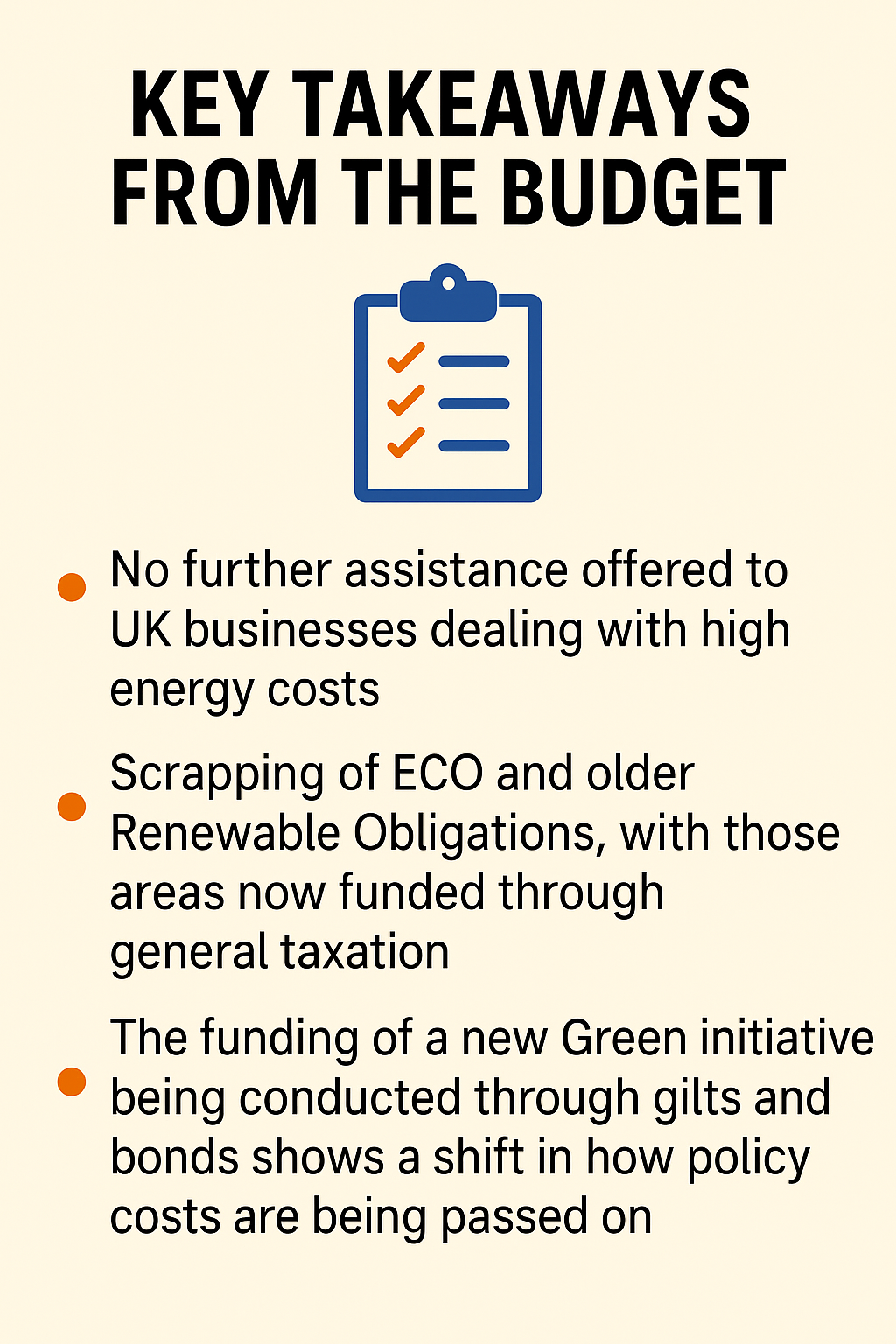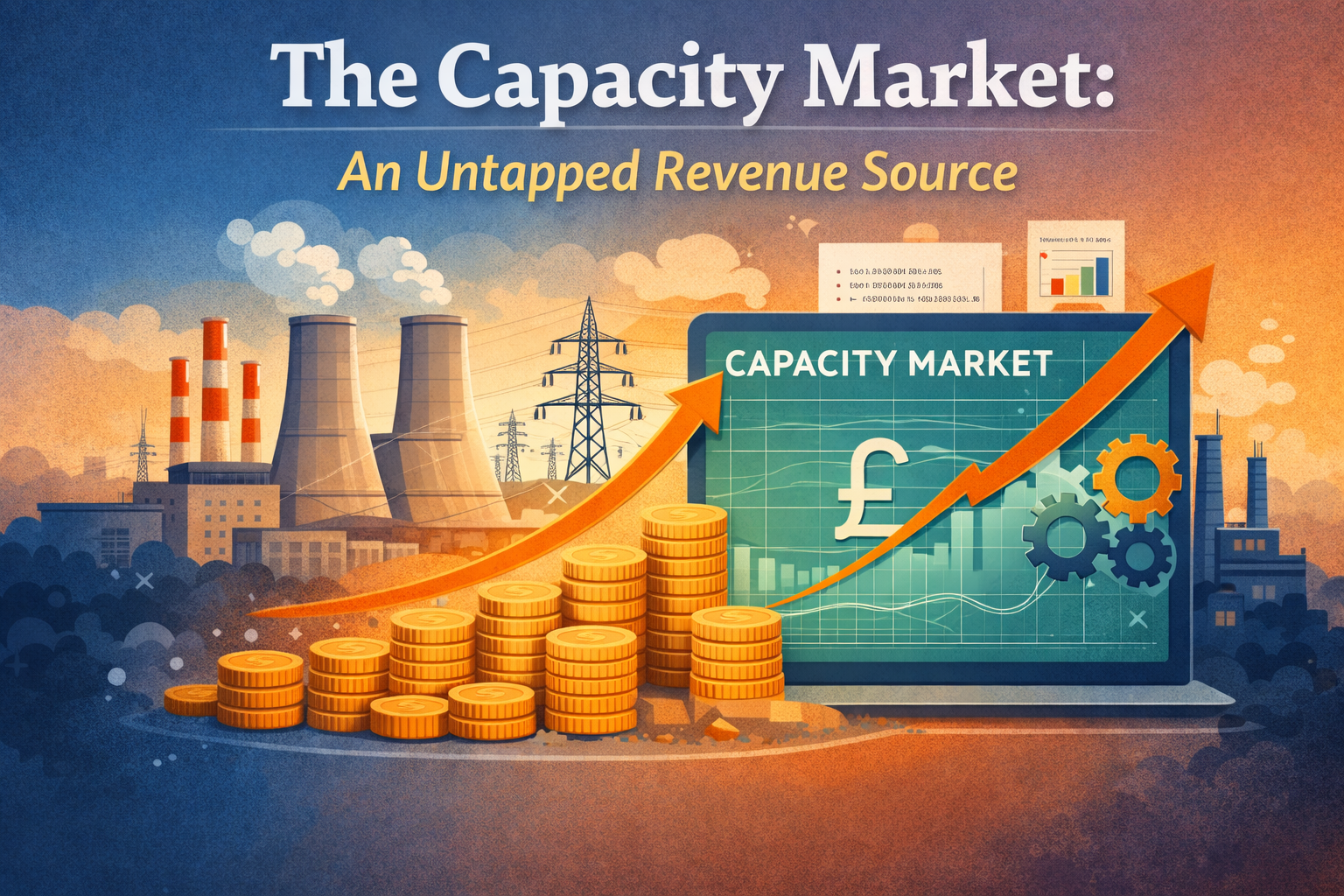How the 2025 Budget Neglects the Concerns of Struggling UK Businesses
By Adam Novakovic
With many British businesses struggling to navigate the challenges that soaring energy costs have had on their ability to compete internationally, there was a sense of optimism that the government would introduce measures designed to alleviate the pressure that many companies have been burdened with.
As we close out 2025, Energy costs are typically within the top 3 overheads for any business operating from commercial property & rising costs are fast becoming the most significant risk to sustainability, which has far wider impacts to the UK economy.
Unfortunately, no such measures were forthcoming and the announcement fell flat for those that need it most. Hopes of expanding the NCCor EII discounts to further sectors, or reducing VAT levels on gas and electricity, turned to disappointment, as only minor changes were announced.
One such change was the government’s decision to abolish the Energy Company Obligation (ECO) and to fund a substantial portion of Renewables Obligation costs through general taxation. Although these measures are aimed at easing pressures on domestic consumers, they also remove some of the cost drivers within the wider energy system. With fewer policy-driven levies feeding into wholesale and supplier operating costs, businesses may experience a modest dampening effect on future price rises, although this is unlikely to translate into immediate or substantial reductions in commercial tariffs.
The Budget did reinforce the government’s commitment to green investment through its updated Green Financing Framework, which will fund green expenditures that tackle climate change, rebuild natural ecosystems and support jobs in green sectors. While this is unlikely to have any short-term impact on energy costs, one small positive -- when compared to previous green schemes -- is that this programme will be funded by the issuance of gilts and bonds, rather than passing the cost on to suppliers who invariably pass the cost on to the end users.
Despite the need for assistance with rising energy costs, small and medium-sized enterprises (SMEs), many of which remain exposed to fixed-term contracts negotiated during the recent price spikes, are not going to see any immediate relief, and the accountability seems to remain solely at the door of the business owners to find their own ways to minimise costs.

The lack of assistance for businesses struggling with energy costs continues a pattern of UK governments valuing green initiatives and renewable investments over energy security and competitive pricing. While there was a silver-lining in the government showing a willingness to finance a green scheme without burdening the end user with further costs, many businesses will be left questioning why there is a lack of support for industries whose competitiveness is being harmed by policy costs inextricably baked into their energy bills.
Without government assistance, it is more important than ever that businesses are taking a proactive approach to lowering their gas and electricity costs themselves, and identifying the right energy consultant to partner with could be the key that unlocks the savings today’s budget announcement sadly missed.
If your business would like greater support on how to reduce your energy spend, with a short, medium and long-term horizon in mind, contact SeeMore Energy today and speak to one of our expert advisors who will help you ‘See More’.
Contact Us










